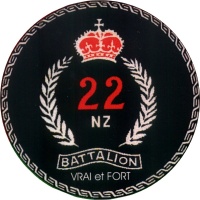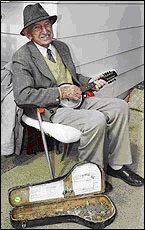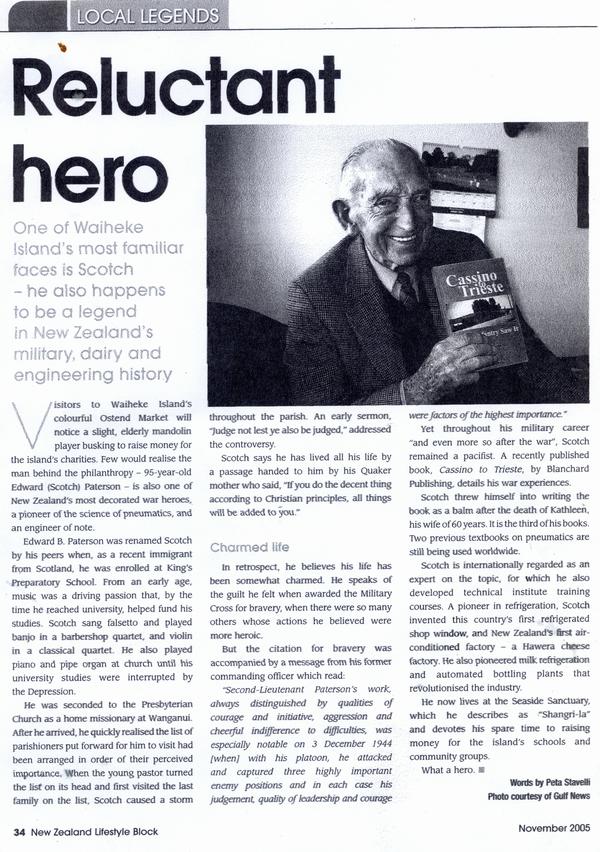Engineer, soldier. Died aged 95.
This obituary was published in the NZ Herald on 5 August 2006
Edward Paterson was born in Scotland, coming to New Zealand at a young age. An an engineer of prominence in his field of pneumatics he retired, at least nominally, about 30 years ago.
But when he died late last month after some months in a Herne Bay private hospital it seemed as though just about everyone on Waiheke Island felt that they knew him. At least three obituaries in his honour have been published in the island's press.
Paterson was in his last years a part-time busker, often seen with his banjo-ukulele outside the Ostend RSA. Some described him affectionately as a hardcase, talkative chap.
But he was a very well-dressed busker, always with a collar and tie. And the battered old case that housed his instrument had an Auckland City street trading licence inside the lid - and a sticker proclaiming the case to be "GE free". His busking raised money for charity, like the Waiheke Kindergarten.
Over time it appeared there was more to Scotch Paterson than musical talent.
He had been to Auckland University before World War II but stopped to get a job through the pressures of the Depression. In those years he married Patricia Boscawan, whom he had met at the university. They retired to Waiheke in the early 1980s.
In retirement, Paterson startled many by completing his university studies, with a BA in philosophy at the age of 84. He is said to have played the bagpipes at his own graduation. Then he wrote a book of his wartime experiences with the New Zealand 22 Battalion in Italy, in which readers found out he won the Military Cross.
After the war, he became a respected engineer, praised for his innovative use of compressed air to automate tricky jobs in production processes. Jim Neville, national president of the Institute of Measurement Control (of which Scotch was an early national president), mentions among Paterson achievements such things as automating bulk concrete mixing, butter packing - and painting designs on Crown Lynn's export crockery. He worked as a consultant and wrote for the New Zealand Engineering News into his eighties.
Scotch Paterson was a man, his son Mike was quoted as saying last week, who thought life should be approached with the question "why not?" instead of "why?".
His wife died in 1992.
|


